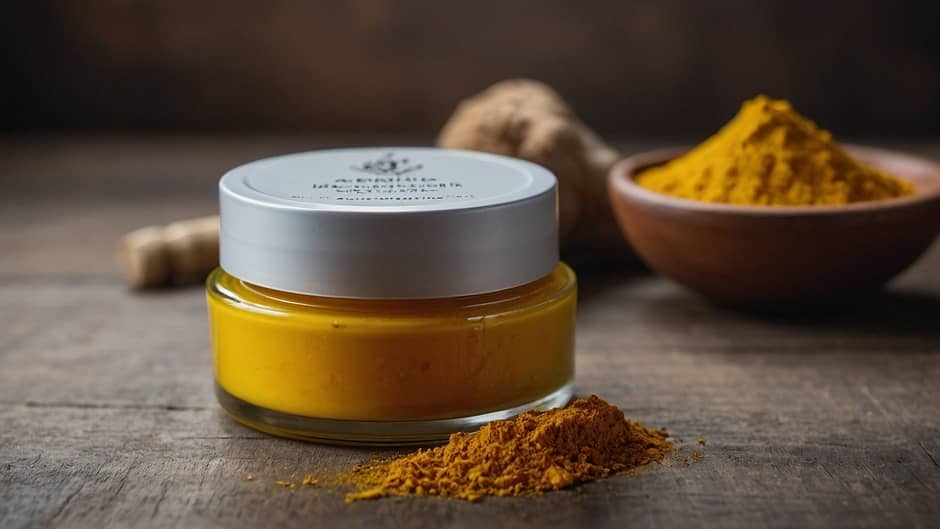Table of Contents
- What Food Allergies Can Cause Skin Rashes?
- Does Allergy Cause Skin Problems?
- What Food Allergies Cause Skin Problems?
- What Are the Common Causes of Skin Allergies?
- What Diseases Cause Skin Allergies?
- Techniques to cure allergies
What Food Allergies Can Cause Skin Rashes?
Have you ever observed that consuming certain foods can make your skin itch or result in a rash?
It’s not just your imagination; some dietary sensitivities can actually be the root cause of many skin problems.
For example, consider nuts.
If you are allergic to peanuts or tree nuts, you may notice redness or hives on your skin soon after consuming them.
It can really annoy you! Next on the menu is dairy. If you are allergic to dairy proteins like casein or have a milk allergy, your skin may become itchy or possibly develop rashes.
Let’s what can be best home treatment for skin rashes.
This is an issue that both adults and children may encounter.
Not to mention eggs, which in children who are sensitive to them can result in eczema or itchy skin patches.
Similar emotions may also be elicited by shellfish, such as shrimp and crab, for some individuals. To find out whether or if certain foods are causing these bothersome skin issues, you should pay close attention to your body and what you eat.
Does Allergy Cause Skin Problems?
Yes, without a doubt! When it comes to skin problems, allergies can play a big role.
When your immune system thinks something harmless is dangerous, it goes into overdrive. It releases artificial chemicals called receptors, which can react to your skin in a variety of ways, including redness, swelling, tingling, and more.
Rashes or flare-ups of eczema may occur if you are allergic to something.
Allergy reactions can be triggered by more than just food allergies; these can also include pollen, cat dander, and specific materials.
It seems like your skin is saying, “Hey, this is so unnecessary!” and gets really irritated as a result.
Therefore, it’s possible that an allergic reaction is what’s causing your skin issues.
What Food Allergies Cause Skin Problems?
Let us dissect it a little.
Nuts are among the foods that often lead to skin issues, particularly peanuts and tree nuts.
Another is milk; after having cheese or milk, people who are allergic to dairy products may develop skin responses. Additionally, wheat can be problematic, particularly for those with wheat allergies or celiac disease.
Another possible allergy that may cause skin problems is soy.
Seafood can also be harmful, especially shellfish like shrimp and crab.
If you observe that your skin becomes inflamed or breakouts after consuming these foods, it can be worthwhile to consult a specialist to determine whether you have a food sensitivity.
Also Read – Physical Exercise And Cancer Treatment – What Can Prevent Cancer? (2024)
What Are the Common Causes of Skin Allergies?
Now, what other factors could be bothering your skin?
Many common causes exist. We’ve discussed the serious issue of food allergies.
Some examples of environmental elements that may be involved are dust mites, pet dander, and pollen. The chemicals in soaps, lotions, and even laundry detergent can sometimes irritate your skin.
When you put on new clothes, have you ever gotten a rash?
The cloth or dyes used may be to blame for such. Furthermore, when your skin comes into contact with an allergen—like nickel in gloves or latex in jewelry—you could get allergic contact dermatitis.
Basically, everything that your immune system interprets as a threat can result in skin problems.
What Diseases Cause Skin Allergies?
These days, a few diseases and ailments can also cause skin sensitivity.
Atopic dermatitis, another name for eczema, is characterized by dry, scaly, and irritated skin. Scaly, itchy patches are another ailment where the immune system produces more skin cells than usual.
Urticaria, often known as hives, can be brought on by allergies to food, drugs, or even infections.
Sometimes, chronic illnesses like lupus and rheumatoid arthritis might cause your skin to respond because of the body’s inflammatory response. Seeing a doctor is a good option if you have recurring skin issues.
They can help identify the issue’s root cause and appropriate course of action.

Techniques to cure allergies
1. Identify and Avoid Triggers
Finding the source of your skin allergy is crucial first and foremost.
Common reasons include foods, pollen, cat dander, and particular materials.
If you are not sure what is causing the reaction, keep a journal of what you eat, where you go, and what you come into touch with.
This could help you identify the source. Once you’ve recognized it, you must try your hardest to prevent it.
For instance, switch to hypoallergenic options if you have a sensitivity to a specific ingredient in skincare products.
2. Use Gentle Skincare Products
There are situations when using harsh cleansers and lotions exacerbates skin allergies.
Pick fragrance-free, sensitive skin care products. Look for terms like “hypoallergenic” and “dermatologist-tested” on the labels. Reducing eruptions can be achieved in part by avoiding products that contain alcohol or other irritating ingredients.
Using mild cleansers and moisturizers will protect and soothe your skin.
3. Moisturize Regularly
Maintaining hydrated skin is beneficial for managing skin sensitivities, especially if you have dry or dermatitis skin.
Your skin may be more sensitive to allergies if it is dry.
Make use of a decent cream suitable for sensitive skin. Applying it right after a shower can help seal in moisture and create a barrier that protects your skin from irritations.
Also Read – Does Social Media Make People Less Socially Active (2024)
4. Manage Stress
It’s true that stress can negatively impact skin health.
Stress control is crucial since it can either trigger or worsen skin sensitivities.
Regular exercise, deep breathing techniques, and meditation can all be beneficial. By taking care of yourself and using relaxing techniques, you may greatly influence your skin’s response.
5. Consider Over-the-Counter Medications
Several over-the-counter medications can be used to treat skin allergies.
Antihistamines help lessen inflammation and itching. Corticosteroid creams can also help to lessen redness and swelling.
To be sure a drug is suited for you, it is always a good idea to speak with a doctor or other medical practitioner before beginning any new one.
6. Use Cold Compresses
For instant relief from swelling and irritation, a cold compress can be very soothing.
Just dab the affected area with a clean, cool, moist cloth for about fifteen minutes.
This may aid in soothing the skin and lowering inflammation. Make sure the towel is not too cold because there are times when severe temperatures might make skin irritation worse.
7. Try Natural Remedies
Some people get relief from skin rashes through consistent treatments.
Aloe vera, for example, can help with inflammation and has relaxing effects.
Oatmeal baths are another well-liked alternative since oatmeal helps soothe sensitive skin. Before beginning a new treatment, a tiny area of your skin should be patch-tested.
8. Stay Hydrated
It’s crucial to consume a lot of water for your skin’s general health. Keeping your skin hydrated promotes skin hydration from the back to the front.
It might also help get rid of pollutants that could be the cause of skin issues.
Aim for at least eight glasses of water per day and include foods high in water content, such as cucumbers and watermelon, in your diet.
Read us on Medium.




